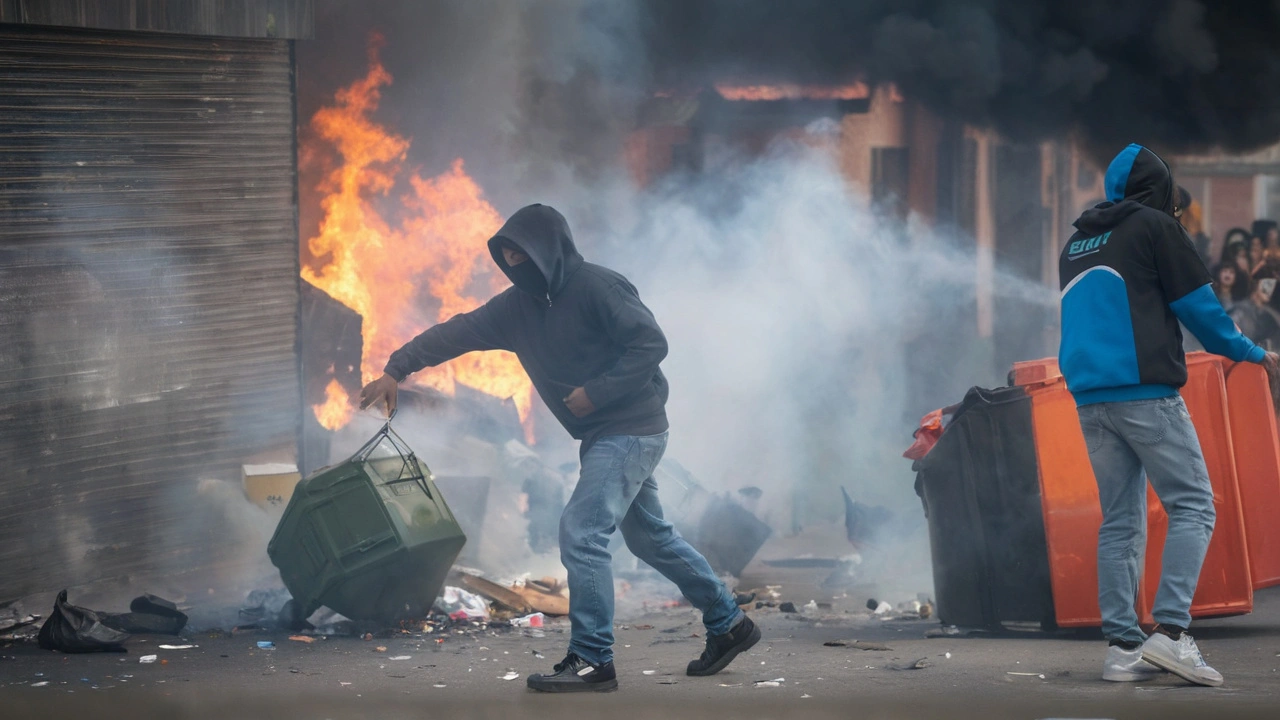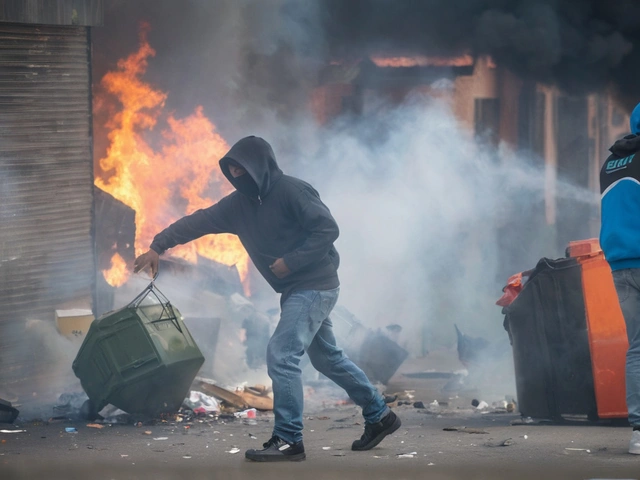The British government has launched an investigation into whether 'state actors' played a role in exacerbating the recent wave of far-right riots that have shocked the nation. These riots have not only resulted in widespread violence but also drawn international concern over the escalating tensions within the UK. The points of conflict have primarily centered around anti-immigrant sentiments, with protesters targeting vulnerable groups and clashing violently with police forces.
The unrest has been particularly intense following a tragic incident in the seaside town of Southport. Last week, three young girls were fatally stabbed during a dance class, sending ripples of grief and anger through the community. The police quickly detained a 17-year-old suspect in connection with the stabbings. Despite this swift action, misinformation swirled across social media, with numerous false claims about the suspect's identity further igniting public outrage. These misleading narratives have been a significant driver of the ensuing violence, demonstrating the harmful impact of unchecked online content.
In the aftermath, far-right protesters have mobilized across various towns and cities, engaging in acts of aggression that have targeted both places of worship and accommodation facilities for asylum seekers. Mosques have endured vandalism and attacks, while hotels housing immigrants have come under siege. The scenes have been harrowing and have put a spotlight on the growing xenophobic sentiments within certain segments of the population.
British Prime Minister Keir Starmer has taken a firm stance against the violence, condemning the actions of the rioters and promising that those responsible will face severe legal repercussions. In a public statement, he emphasized that such behavior would not be tolerated and assured that the government is committed to maintaining societal peace and harmony. Starmer's words have resonated with many who are outraged by the violent unrest and the divisive rhetoric fueling it.
The government's concern has now shifted to whether external influences, specifically state actors, may have been involved in amplifying the tensions. The term 'state actors' refers to individuals or groups acting on behalf of, or with the support of, a sovereign state. The possibility that foreign entities could be meddling in domestic affairs to destabilize the UK adds a complex and alarming dimension to the situation.
Investigations are ongoing to substantiate these claims, but the potential implications are profound. If state actors are found to be involved, it could indicate a significant erosion of national sovereignty and expose vulnerabilities in the country's security apparatus. Such findings would necessitate a comprehensive review of not only domestic policies but also international relations and cybersecurity strategies.
The recent riots underscore a broader, more pervasive issue of misinformation and its capacity to inflame societal divisions. The rapid dissemination of false information, especially on social media platforms, has proven to be a potent tool for those seeking to exploit and amplify existing tensions. The situation in the UK is a stark reminder of the pressing need for robust mechanisms to counteract misinformation and to promote responsible digital citizenship.
The role of social media companies in regulating content and preventing the spread of falsehoods has come under scrutiny. Critics argue that these platforms have not done enough to stem the tide of harmful misinformation that can lead to real-world violence. Advocates for stricter regulations on social media highlight the necessity of balancing free speech with the imperative to protect public safety and societal cohesion.
While the investigation continues, communities affected by the violence are in desperate need of support and reassurance. Local authorities and community leaders are working tirelessly to provide aid, rebuild trust, and foster a sense of unity amidst the chaos. Efforts are being made to engage with both immigrant and native populations to bridge the divides and promote inclusive dialogue.
The events in Southport and subsequent unrest have also heightened discussions around immigration policy and the treatment of asylum seekers in the UK. Humanitarian organizations have called for increased protection and better living conditions for those seeking refuge, arguing that current measures are insufficient and expose these individuals to undue risk.
As the investigation continues, the eyes of the world remain on the UK. The outcomes of this probe could have far-reaching consequences, not just for the country’s internal stability but also for its standing on the global stage. The revelations about potential state involvement in stoking civil unrest would demand a robust response, both diplomatically and strategically.
In the meantime, the priority for Prime Minister Keir Starmer and his government is to restore order and ensure that justice is served. The government's commitment to holding perpetrators accountable is a critical step in reassuring the public and rebuilding trust in the state's ability to protect its citizens and uphold the rule of law.
The unfolding situation serves as a crucial reminder of the importance of vigilance against misinformation, the need for strong community ties, and the imperative of safeguarding democratic institutions from external threats. The UK's response to these challenges will likely serve as a case study in resilience and the intricacies of navigating modern political and social crises.



Leave a Comments